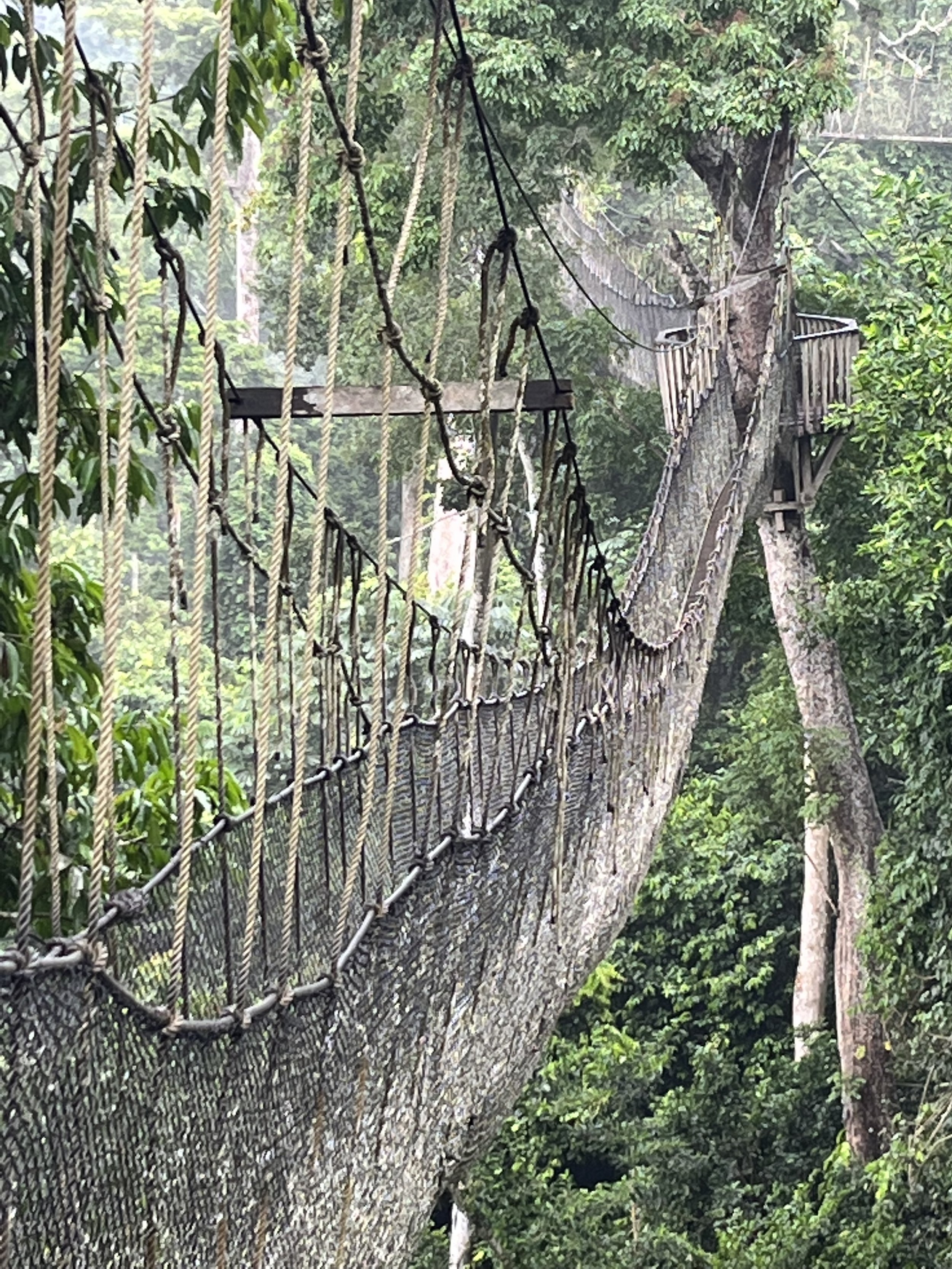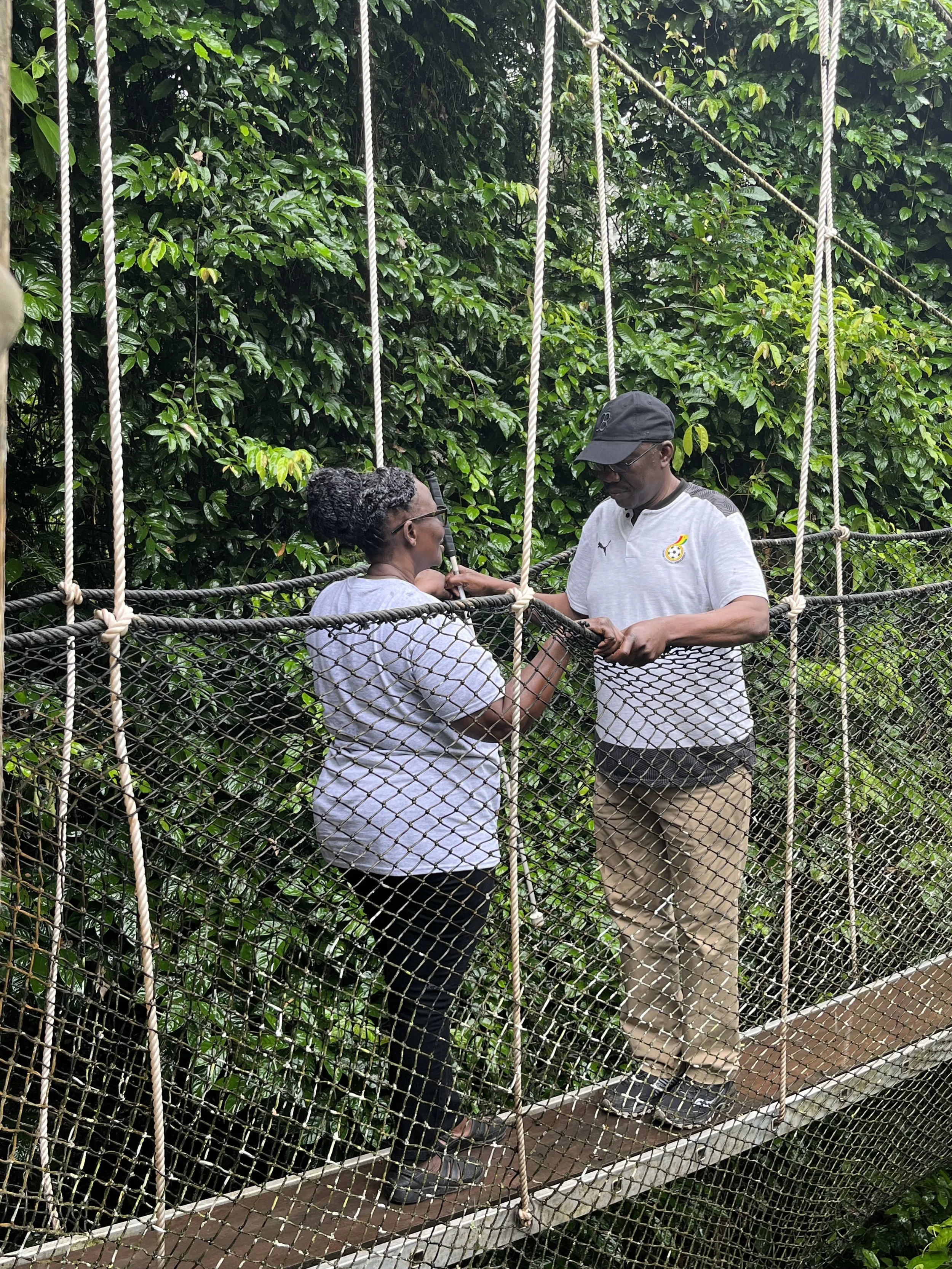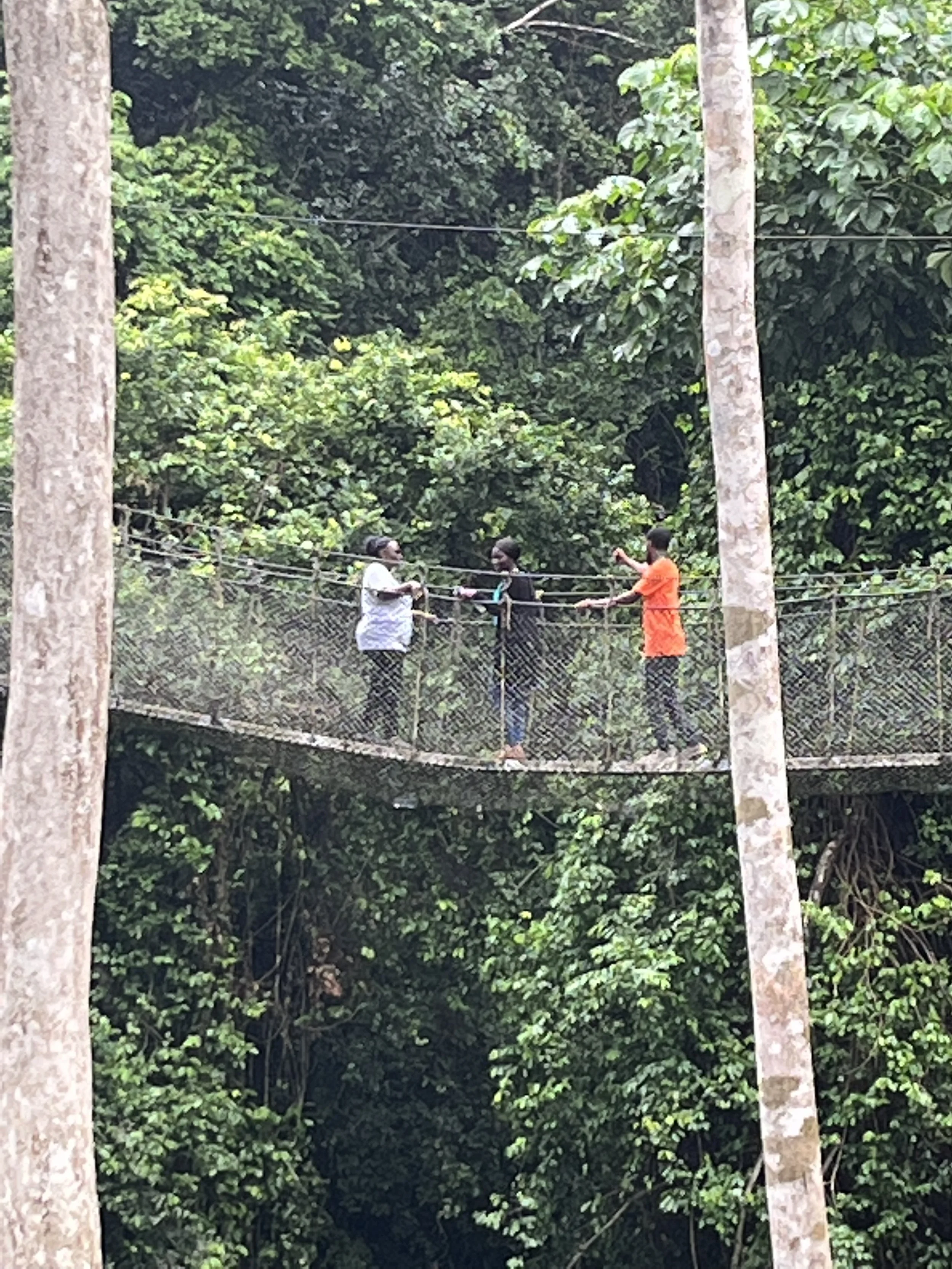It has been my desire for many years to experience the Kakum Canopy walk. The Kakum forest, that is home to the canopy walk, is a rainforest. The canopy walk hovers 30 meters above the rain forest and it is quite a source of pride for people who succeed in walking the whole length of the canopy without intense fear. At the end of the canopy walk, many tourists and adventurers pose proudly under a sign which proclaims, “ I survived the Kakum canopy walkway, I’d been told. I’d always wanted to do that- success after a challenge!
That is one of the reasons I wanted to do the Kakum canopy walk and to feel the thrill of the swaying canopy knowing I am floating about 30 meters above a rain forest!
But others were concerned, and for good reason. However, the more the concerns and sometimes discouragement were expressed, the more my desire for the experience.
When I joined the Witness Tree Institute cohort of 2022, I knew this dream, among others, would be achieved.
I knew it was a difficult activity for many, and I assumed I’d be no exception. But least did I know that some particular balancing is required.
As a person with visual impairment, who uses trailing mostly for independent travel, keeping in the middle of a walkway was going to be quite difficult and that helping me achieve this would be a challenge for the WTIG Team Leader who was trying to help me.
He made us go through a trial walk that gave me some further understanding of the issue.
Thinking through the problem, I brought it to the attention of the Team Leader and the Tour Guide with my suggestion how I thought I could do the walk.
The Tour Guide offered a modification of the different suggestions and soon, we came to an agreement on how I could participate in the activity but with an adaptation.
It was not exactly how others go through it but with my understanding of the problem, I gained more confidence.
With encouragement and assistance, I successfully walked the Kakum canopy, the experience I have longed for, for many years .
I noted the team work that yielded positive results, the feeling of accomplishment that I and the whole cohort felt, and the learning we all gained.
As a trained teacher I wondered how much more learning would be enhanced in Ghanaian classrooms if more schools would adapt flexibility in curriculum, encourage team work, adapt student centered learning and teaching and engage the learner/person with disability.
Perhaps a lesson to all educators, parents, and society as a whole? Thank you the Witness Tree Institute of Ghana.
The above is something I was looking forward to. What I wasn’t expecting was my emotional response to the dark history of the Cape Coast Castle and the International Slave Trade. I share the experience of my story through this video.
By Oforiwaa Fefoame
Global Advocacy Manager of Sightsavers, Accra, Ghana and Ambassador Advocate for Gender and Disability Rights at the United Nations


